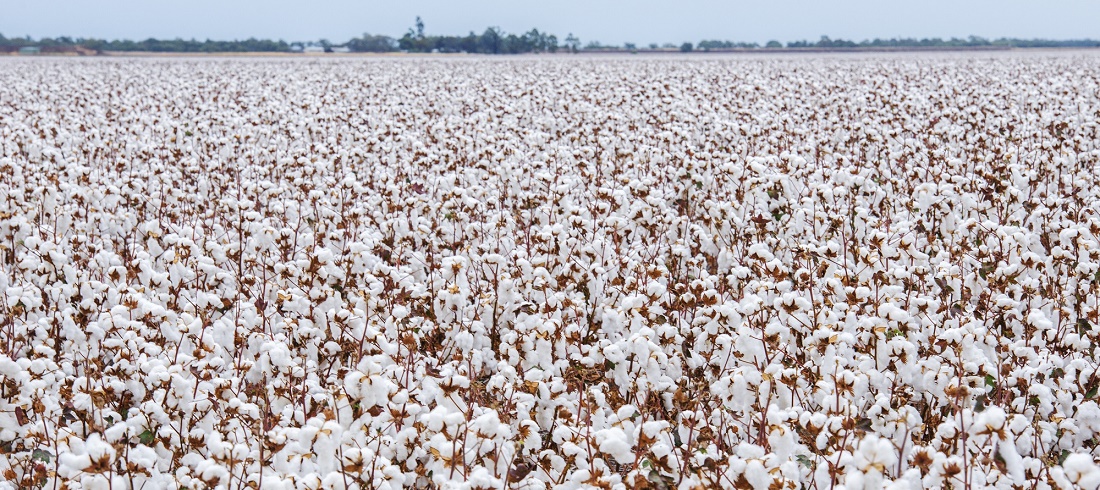
Brazil Surpasses USA in 2023/2024 Cotton Exports, Future Rank Unclear
Jul, 01, 2024 Posted by Gabriel MalheirosWeek 202426
Brazil has officially become the world’s largest exporter of cotton, surpassing the United States for the first time in 2024. This milestone, initially projected for 2030, was achieved before the end of the 2023/2024 commercial year. The development was observed during the 75th meeting of the Sector Chamber of the Cotton and Derivatives Production Chain, held at the XXI Anea Cotton Dinner, an event organized by the National Association of Cotton Exporters (Anea) in Comandatuba, Bahia. However, some groups present at the meeting noted that this position might not be held in the next cycle, although Brazil and the United States are expected to remain close competitors at the top of the rankings.
Other significant achievements for Brazilian cotton production were also announced at the event. According to the Brazilian Association of Cotton Producers (Abrapa), Brazil is expected to harvest around 3.7 million tonnes of processed cotton in the current season, with exports reaching approximately 2.6 million tonnes. The harvest is accelerating, and entities estimate that the quality will surpass that of the 2022/2023 season. About 60% of the production has already been sold.
“Becoming the global leader in cotton supply is a historic milestone, but it is not an end goal, nor was it expected so soon. Our continuous efforts have focused on improving processes, quality, traceability, and sustainability, leading to greater efficiency,” said Alexandre Schenkel, president of Abrapa.
While cautious about celebrating the global achievement, Schenkel emphasized the importance of recognizing that just over two decades ago, Brazil was the second-largest cotton importer in the world. “This turnaround is due to extensive work and investment in reconfiguring the industry through research, scientific development, professionalism, and unity. It is a milestone that fills us with pride as producers and citizens,” he added.
Anea president Miguel Faus noted the uncertainty of maintaining the lead in the global cotton market next year. “This will depend on the American harvest, which is projected to be larger than last year, making the export volumes of both countries close. The significance of this achievement reflects years of hard work by the entire sector, including producers, exporters, and the logistics chain. The goal was reached ahead of time, partly due to the poor American harvest,” explained Faus.
The following chart shows Brazilian cotton exports measured in TEUs every month from January 2021 to May 2024. The information below comes from Datamar’s business intelligence service DataLiner.
Brazilian Cotton Exports | Jan 2021 – May 2024 | TEUs
Source: DataLiner (click here to request a demo)
Industry
The increase in Brazilian cotton production also presents challenges for the national textile industry, which has seen consumption remain steady at around 700,000 to 750,000 tons annually. Fernando Pimentel, superintendent director of the Brazilian Association of the Textile and Clothing Industry (Abit), mentioned that the entity and Abrapa are exploring ways to increase yarn and fabric production to one million tons per year.
“This requires action. One key factor is encouraging consumption at the point of sale. Our industry faces recurring competition from imports from countries with lower costs, fewer taxes, and more competitive interest rates. It’s a complex issue, but we can emphasize sustainability, environmental respect, clean energy, and certification,” Pimentel stated. He added that achieving this goal will take time, dedication, strategy, and effective execution.
Source: Notícias Agrícolas
Click here to access the original news report: https://www.noticiasagricolas.com.br/noticias/algodao/379943-brasil-ultrapassa-eua-em-exportacoes-de-algodao-em-2023-2024-mas-o-posto-nao-e-definitivo.html
-
Meat
Jun, 04, 2024
0
Chile Greenlights Argentine Poultry Meat Exports
-
Other Logistics
Feb, 18, 2019
0
Codesp reviews proposals for new Port of Santos access road
-
Ports and Terminals
Oct, 05, 2023
0
Port of Santos prepares USD 560 M investment in Peripheral Avenue
-
Ports and Terminals
Oct, 05, 2023
0
Ports in Brazil’s ‘Arco Norte’ exhibit 60M throughput

